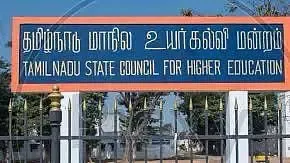Delhi High Court Affirms CISF's Ruling on Candidate's Ineligibility for ASI Role Due to Tattoos

New Delhi, Jan 1 (NationPress) The Delhi High Court has chosen not to intervene in the CISF decision that deemed a candidate ‘unfit’ for the role of Assistant Sub-Inspector due to the presence of tattoos on his body.
A bench comprising Justices Navin Chawla and Shalinder Kaur was reviewing a petition submitted by the candidate, who was found unfit because of a tattoo located on his left forearm and another on the left side of his chest.
The petitioner, Gedela Chandra Sekhara Rao, was marked as “unfit” for consideration for the Assistant Sub-Inspector (Executive) position through the Limited Departmental Competitive Examination (LDCE) in the Central Industrial Security Force (CISF).
The petition argued that the employer should have allowed the petitioner time to remove the tattoo prior to conducting his Review Medical Examination (RME), as it is a procedure that can be performed easily.
In its defense, the CISF asserted that the 2021 Revised Uniform Guidelines for the Review Medical Examination in Central Armed Police Forces and Assam Rifles clearly state that while a tattoo on the left forearm is generally allowed, it must be located on the inner aspect of the forearm.
The petitioner, already serving in the armed forces, was aware of this restriction, and despite this knowledge, he still had a tattoo on the outer side of his left forearm, thus, he was not entitled to any relief, the CISF added.
After evaluating all arguments, the Delhi High Court, referencing a ruling from the Supreme Court, explained that promotions to higher positions for those currently in lower roles through the LDCE represent a form of accelerated promotion and cannot be treated the same as standard promotions. The applicant must adhere to all conditions outlined in the job advertisement.
“The petitioner, being a member of the Armed Forces, should have been aware that having a tattoo on the outer side of the left forearm is against the rules. Nevertheless, he has one. While, for certain purposes, he is considered a direct recruit, he cannot expect the same standard of fairness applicable to a direct or fresh recruit who may not be fully informed of the stringent medical criteria enforced in the Armed Forces,” the court stated.
Concluding that the petition lacked merit, the Delhi High Court dismissed the application made under Article 226 of the Constitution.









